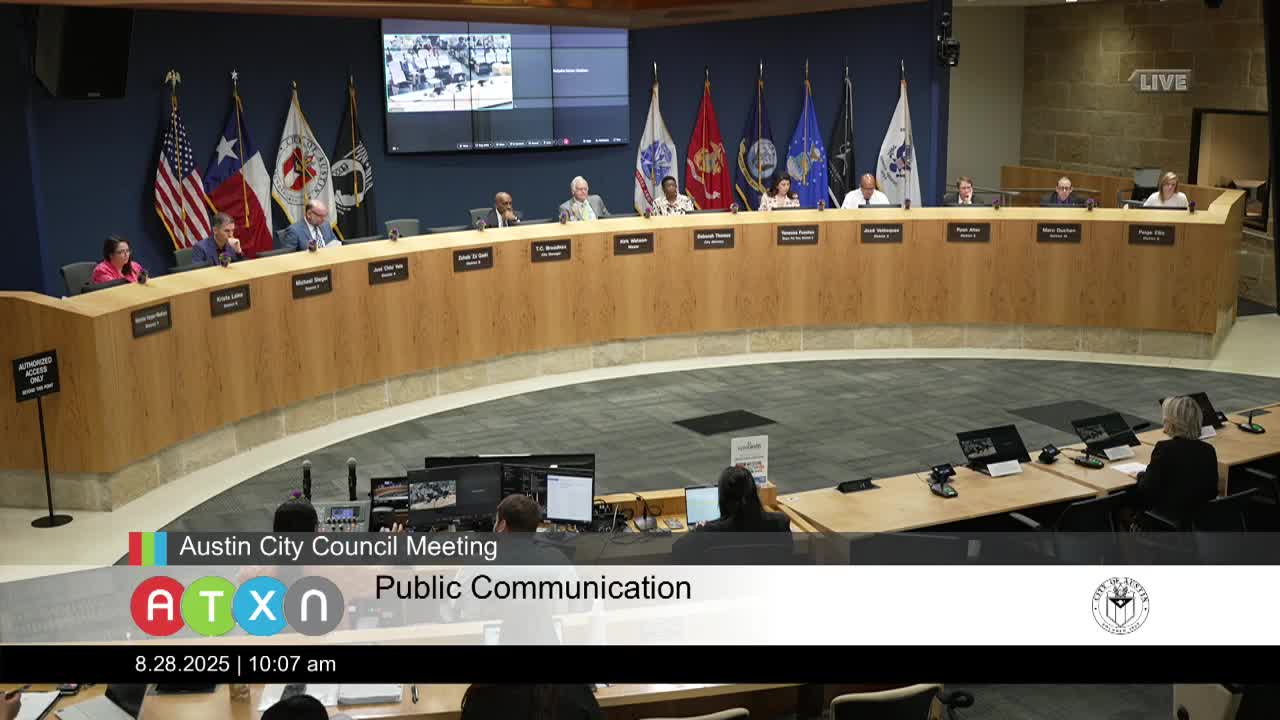Article not found
This article is no longer available. But don't worry—we've gathered other articles that discuss the same topic.
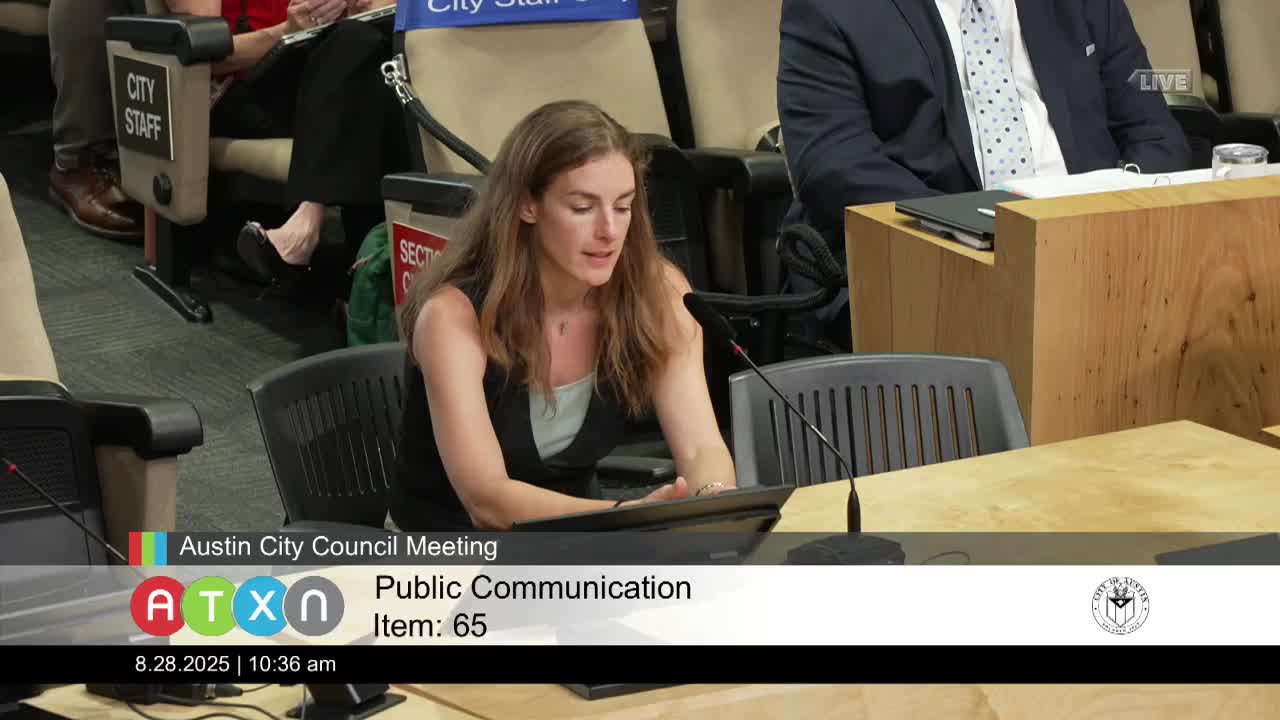
South Austin neighbors object to large development approvals; VMU conditional overlay change draws opposition
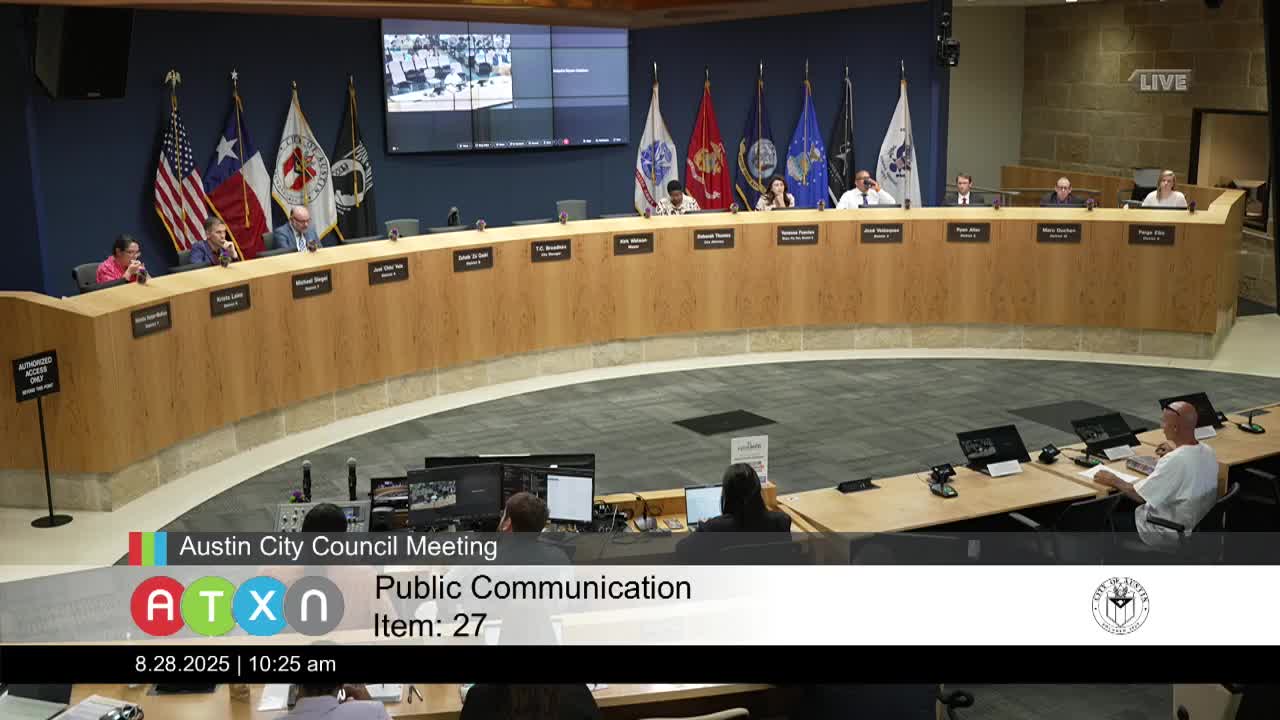
Speakers urge Austin Public Library leadership change and auditor review over CTN policy, video record concerns
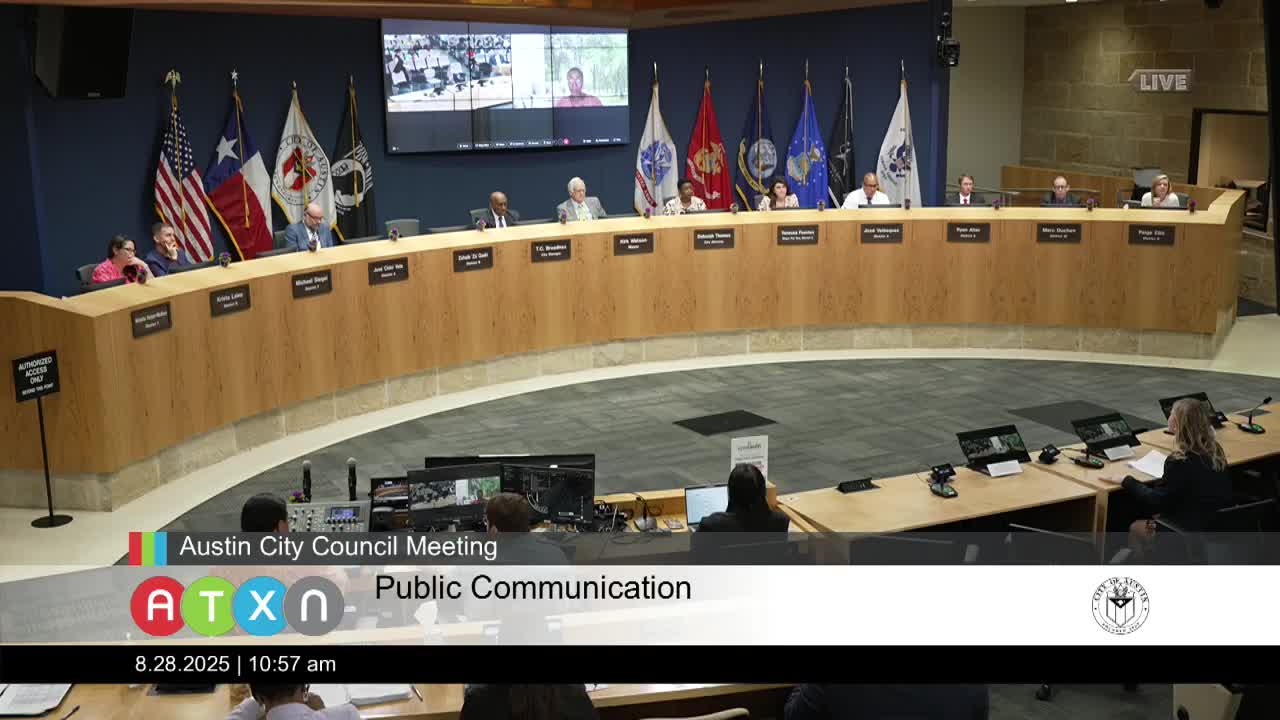
Restaurant groups back council resolution to revisit permit‑fee changes; workforce advocates seek stakeholder process
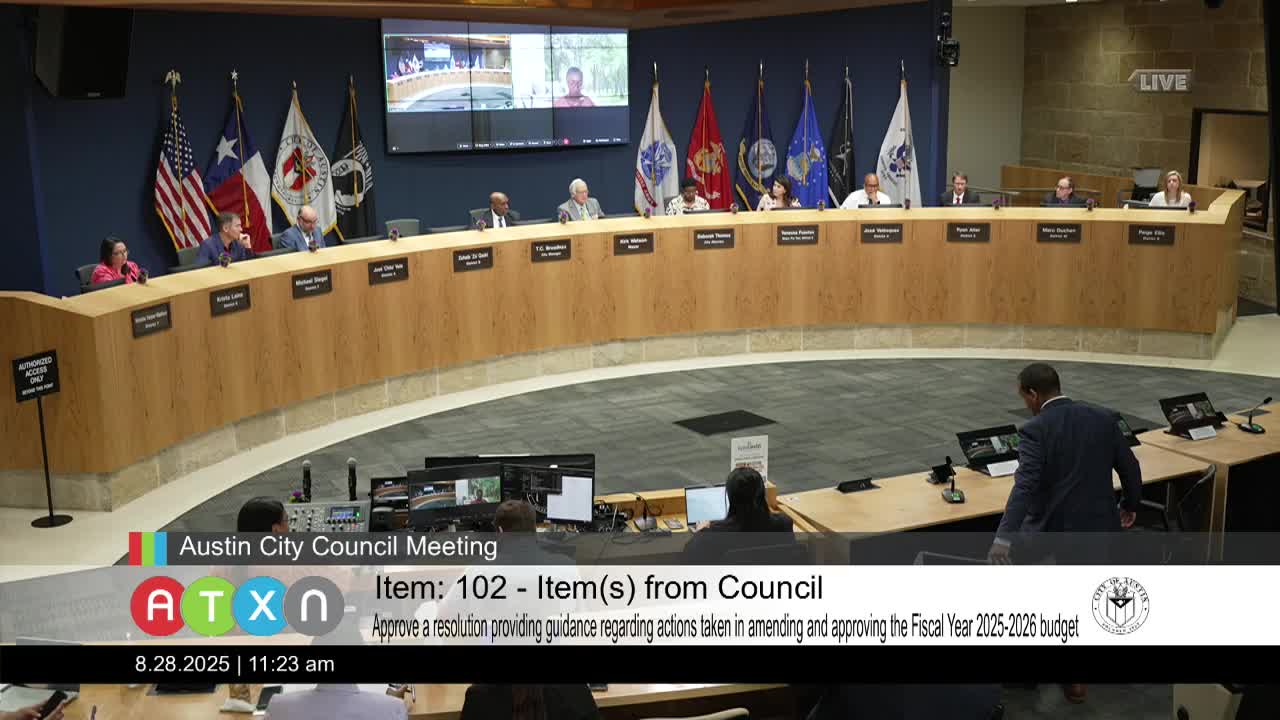
Council debate on youth homelessness prioritization fails after close vote
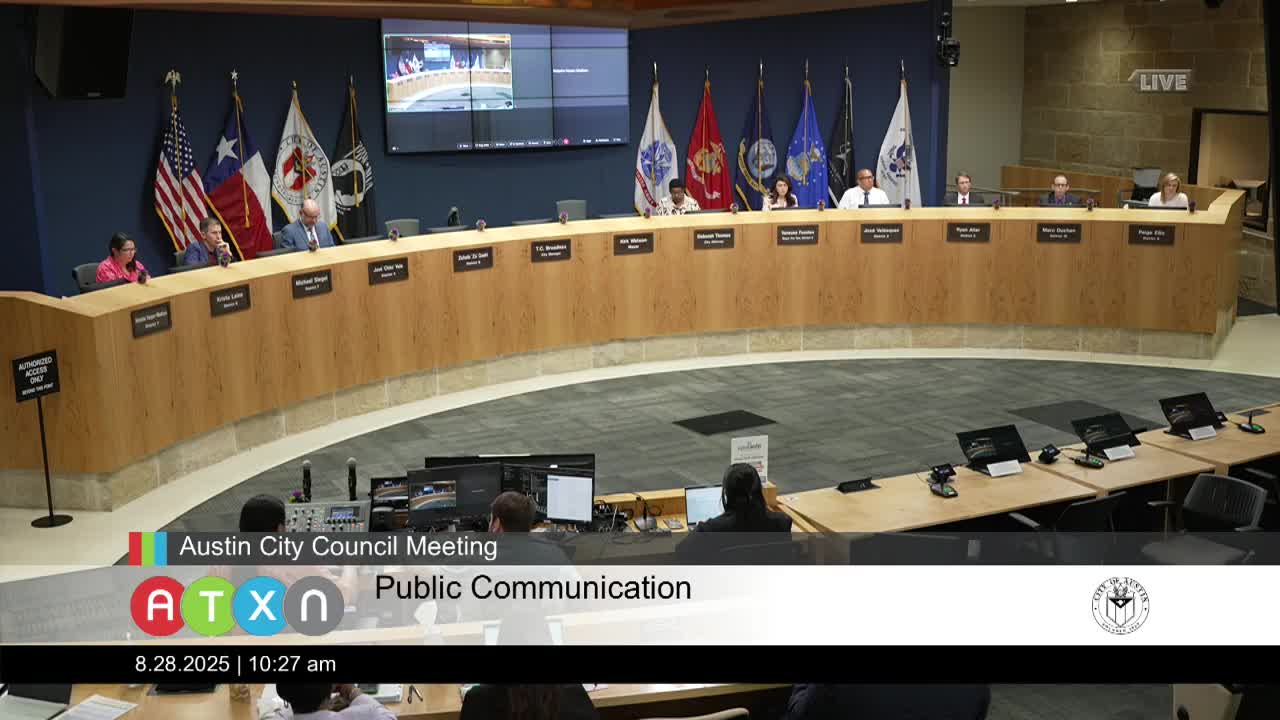
Council approves convention-center Wi‑Fi contract despite councilmember dissent over cost
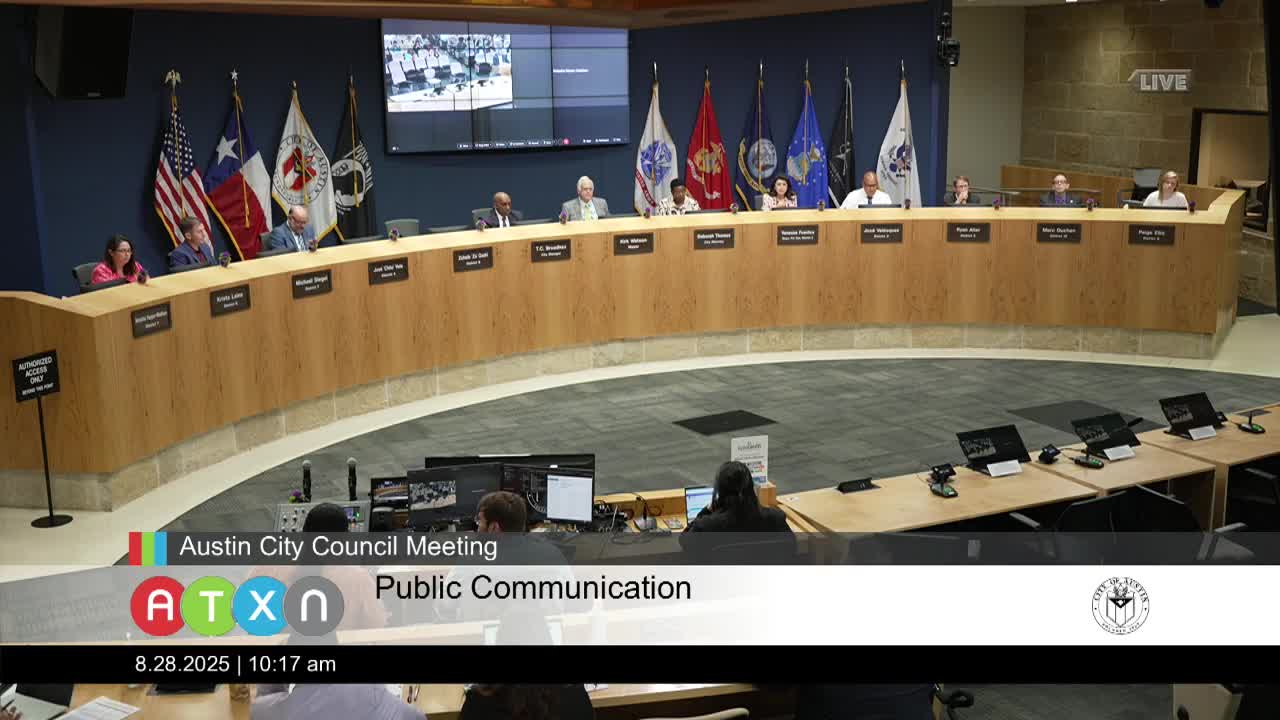
Some residents question $22–23 million Visit Austin marketing plan; business groups back it
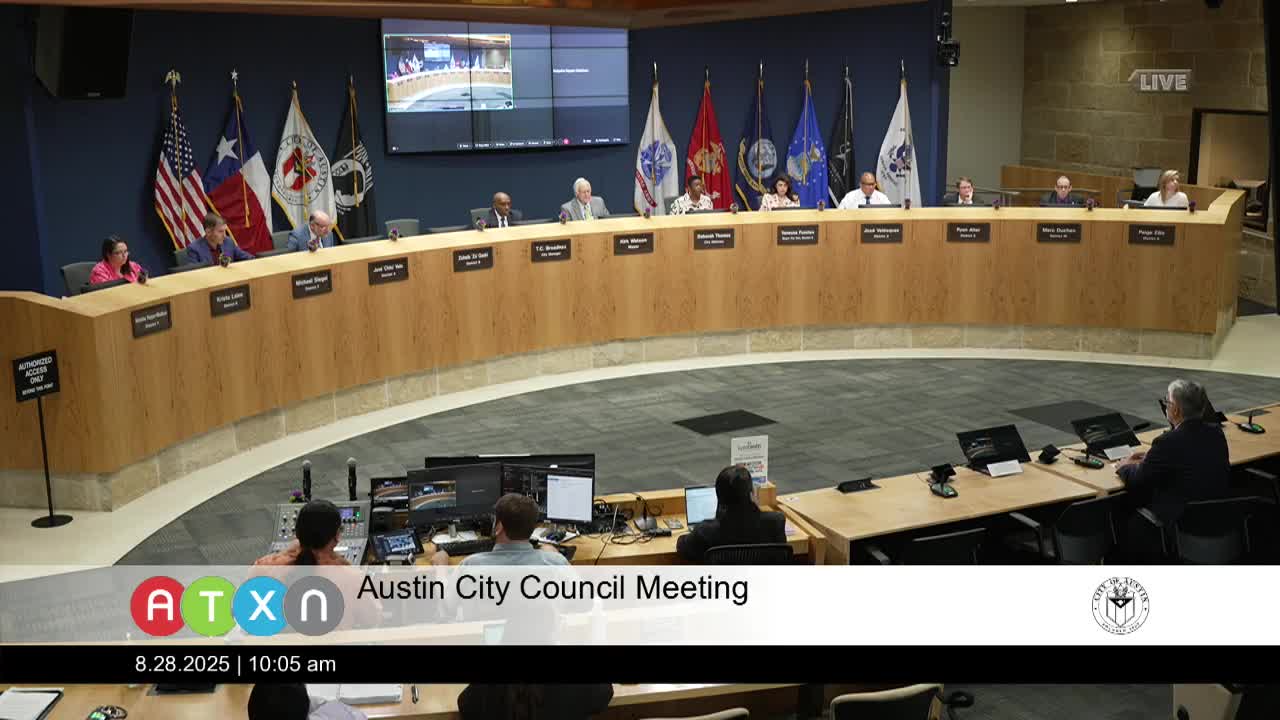
Resident objects to $260 million certificates of obligation for Austin Water; cites lack of project detail
